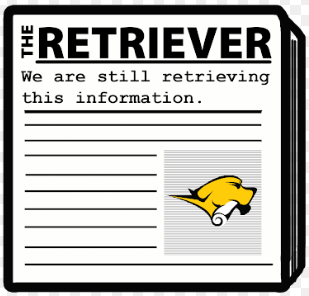Media literacy, the ability to analyze and evaluate media, has become a hot-button issue in the past two or three years. Social media has allowed so-called “fake news” to reach communities across the United States faster than physical newspapers ever could.
Most people who are not majoring in communications or journalism in college have never been trained in media literacy. They are encouraged to exercise judgement in reading articles online but are given no formal instructions on determining the truth of articles. This is how false articles about everything from politics to celebrities continue to spread.
The obvious solution, at the UMBC level, is to require an introductory media literacy class. The Media and Communications Studies department offers exactly this class. The lecture and lab combination course is, “designed to help students critically engage with the media of communication, information, entertainment, and surveillance that surround us,” as it is listed in the course catalog. Unfortunately, not many people outside of the English or MCS department have any reason or room in their course schedule to take it.
UMBC requires undergraduate students to take classes to fulfill the General Education Program before they can graduate. GEP classes fill one of five requirement areas (arts and humanities, social sciences, mathematics, sciences, and culture) and satisfy one of several functional competencies, one of which is information literacy.
The number of credits in each area varies depending on major and concentration, but there is one thing shared between them: many of them can be completed with an Advanced Placement passing score instead of a college level course. Social sciences GEPs may be filled with world history, American government and American history AP tests. Even the English composition GEP, which should be taken at the university level to ensure proper essay writing skills going forward in a student’s college career, can be filled with a high school AP course.
Because of this, any media literacy requirement should not replace the English composition GEP. Although many students feel that there are too many GEP courses, composition and teaching students how to write is very important. UMBC even dedicates an area of the AOK Library to the Writing Center, a free tutoring service offered every semester on campus.
Dr. Simon Stacey, Director of the Honors College, believes that the composition requirement is so important that Honors College students are required to take a composition course regardless of their academic completion record. “We believe that Honors College students also need to be good writers,” he explained. “And that’s why, even if students have AP’ed out of university requirements, we expect a substitute class.”
“There’s more to be had in a college level, 15-week course in expository writing,” Associate Director Dr. Jodi Kelber-Kaye agreed, comparing the English composition course to a high school AP equivalent.
The University of Maryland College Park, UMBC’s neighbor in higher education, requires 4-6 credits of “cultural competency.” These courses include: Essentials of Intercultural Communication; Changing Climate, Changing Cultures; and Lesbian, Gay, Bisexual, and Transgender People and Communication. While none of these classes specifically advocate for “media literacy,” they all incorporate media and communication in different areas of study.
In the current political climate, all three of these College Park classes have an important cultural impact. There is a lot of misinformation spreading about non-American cultures, climate change and LGBT people. A new generation of college students educated in analyzing articles about these and similarly contentious subjects would go a long way in stopping the spread of “fake news.”
Developing interesting, engaging and wide-reaching media literacy classes based on this model would require MCS and other departments to work together. MCS 101 currently fills the Arts and Humanities GEP, but it would have a larger enrollment and wider reach if it had its own requirement.


